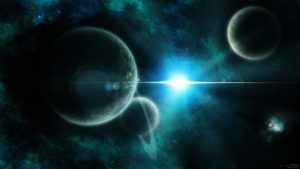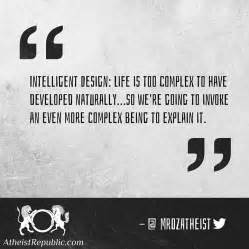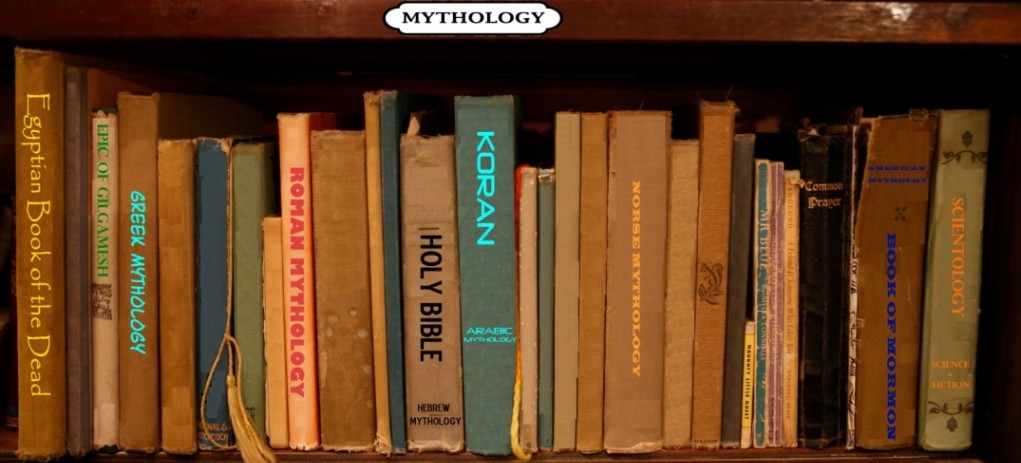
Myself, and Tom Cara from the Chicago Chapter of the Freedom from Religion Foundation at the Secular Coalition for America (SCA) booth at the McHenry County Fair, Woodstock, IL on 8/5/17. 5 days at the Fair in a conservative and overwhelmingly (tho changing) Republican County, we passed out a lot of literature, signed a couple dozen people up for SCA Action Alert emails, talked a lot about separation of church and state, and represented non-belief and non-believers to a whole community of traditionally religious Americans who may have met outed atheists for the first time in their lives. AND spoke with a whole lot of people trying to figure it all out…on so many people’s minds: religion, god, creation, you name it. We had some great discussions. Like last year, only one truly angry, aggressive one.
(It has been a month since the last post. Finals with the 3 summer courses I teach, a 3 day Gateway to Reason Convention in St Louis selling my books and recruiting for SCA, interviewing for and landing a new FT teaching job for next year 3.5 hrs from home, getting an apartment there, class preps for the new job, finishing replacing the head gaskets on my daughters car, and then this 5 day booth at the Fair…its been an exceptionally jam-packed month. That’s my story and I’m sticking to it.)
A dozen of us from SCA, and BASH ( Barrington Area Secular Humanists), and the Chicago chapter of FFRF (Freedon from Religion Foundation), did our part this week to change US culture away from it’s domination by religion, by raising consciousness and spreading the word about non-belief, secular humanist values, and the necessity for separation of church and state. One of the most popular stickers folks picked up was the “I Believe in Good” one: a humanist value if there ever was one. Some folks ignored us, and a few got irritated when they realized what they are looking at: one lady said she would pray for us, but she didn’t look too happy about it. I always wonder when someone says this, if they actually ever pray, and/or just what they might pray for regarding us Unbelieving Scum. But more than a few stopped by and picked up literature, signed up for email alerts to notify their legislators about church/state issues, and gave us the thumbs up, saying “thank you” for being there representing non-belief, and taking a stand against religion. It was allgood. Even the folks that aren’t happy with us are getting new information: that non-believers are active among them, and that there is an organized front working to keep church and state separate. Many also discovered that atheists, agnostics, and freethinkers; humanists all, are just nice friendly people like everyone else. Like I said, its allgood.
A great deal of people nowadays have the ideas of god and existence on their minds. The discussion is everywhere now in the 21st century, very unlike the situation but a decade or so ago where it was impolite to discuss much less diss religion. People are more open to discussing it than ever before in the US. It’s socially acceptable to question religion and the conversation is splattered daily all across all media like never before. Accordingly, we get a few that want to talk about the god question and will engage in some more in-depth probing discussion with us non-believers manning the booth.
One fellow in particular stands out. He was manning his own booth at the far end of the building and stopped by 3-4 times to ask questions and get his viewpoints heard. On one occasion, while looking at our literature, he asked me what an atheist was. I didn’t feel he was being facetious, just wanted a precise definition before continuing. I told him it was someone who didn’t believe in god/gods. He then said he was neutral on the subject and I said that sounds like he might be an agnostic; one who says we just cant know, or could, but we don’t have enough evidence to decide if there is a god or not. He didn’t agree that described him and went on to express what he did think. He felt everything around us, gesturing broadly, I assume to include all existence, well, that was god. I said then, he might be a pantheist where the entire universe, all things, are god or partake in god. He wasn’t satisfied with this term either and went on to clarify more.

A wonderful exchange already at this point; two strangers, (I never got his name), having a probing conversation about ultimate existence that would normally be heard in an advanced philosophy class. He continued that “all this” had to come from somewhere, something out of nothing just can’t be, so there must be a god. I didn’t get to tell him that he was now espousing at least a Deist position, but he was adamant that the Big Bang wasn’t enough, there had to be something, more precisely he described a “someone” before the Big Bang who had to have made this all happen. Something just can’t come from nothing! Whether its God or guidance: a Big “G” or a little “g”…some intelligent agent or at least some vague intelligence/guiding principle must have made something from nothing occur. It just cant happen by itself. The universe itself, existence just cant be eternal, all on its own. For many, an un-caused or eternal universe is just not a satisfying explanation.
He was pulled away to handle a potential customer and we never did get a chance to pick up where we left off. He did speak to a couple of our folks later on private school vouchers and that they were a real good idea. I only heard of bits of his argument on that, but I suspect he was more religiously inclined than he first let on. Our folks of course rebutted that why should taxpayers fund religious education which occurs in most private schools and especially since churches already have tax free status.
Be that as it may, this idea that there has to be an intelligent agent or at very least a guiding intelligent principle or consciousness that had to have started everything is deeply ingrained in our culture, which I surmise is merely old philosophical, theological speculation that has been around so long unquestioned and tacitly accepted that it seems right. It just doesn’t feel right to many that somehow the universe just popped into existence or is itself eternal without an eternal guiding hand or force behind it.

God can be eternal, or must be, but not matter or energy, not the universe: existence itself. Few realize that in their disdain for the universe itself being eternal, in positing an eternal Creator God, they solve no logical dilemma. Who created god? You might ask them. Usually, you get an incredulous look back, “Well, God doesn’t need a creator, He is the Creator…everyone knows that.” It is one of those unquestioned givens in even our modern culture. People rarely think it through that supposing a more complex entity for which there is absolutely no evidence, is in all actuality, incomparably less probable than the universe itself, given the voluminous evidence for the universe’s age and expansion, and its beginning in the Big Bang. The more we get that info out to the public, an educated public, and it becomes mainstream, (and of course the less we indoctrinate children into 2,000 year old primitive, unscientific, and just plain wrong attempts at explanation for the world we find ourselves in), the more palatable the real, scientific explanations of our reality will become.
I did an entire section in my book, The Arrogance of Religious Thought, on the very old idea that something can only proceed out of nothing, and only at god’s command:
Ex Nihilo
In 1215 The Lateran IV Council of the Catholic Church proclaimed that:
“God… creator of all visible and invisible things, of the spiritual and of the corporal; who by His own omnipotent power at once from the beginning of time created each creature (from nothing), spiritual and corporal, namely, angelic and mundane, and finally the human, constituted as it were, alike of the spirit and the body (D.428)” “Deus… de nihilo condidit.”
God, out of nothing created all things (even the angels). Angels, huh? Really? Lions and tigers and bears, oh my. ‘Ex nihilo nihil fit’ “Out of nothing, nothing comes.” Unless God decides to create something from nothing, nothing can come from nothing and only he can do so and did so. That’s the crux of the theological and philosophical biscuit. This idea has been around for millennia, going back to the Greeks (doesn’t everything?). And thus it came to pass it became a religious truism and a dogma of the Church for the last 1,000 years or so. More importantly it has crept along silently deep into our culture ever since as sort of an unquestioned cosmic given:
“Once upon a time there was absolutely nothing, and God made everything out of it.”
It seems to have permeated philosophy as well as theology, but not modern science. Scientists are always willing to adjust their metaphysical assumptions to whatever they actually find in the world, while our theological and philosophical friends appear a bit more recalcitrant. What if despite the Lantern Council’s authoritative proclamation, there is no true absence of anything, be it matter or energy (which we know from Einstein’s E = mc2 are manifestations of the same “thing”)? What if we discover, as is the case of otherwise empty space devoid of matter, there is an energy, that space isn’t really completely empty? What if we find there is always something there, matter or energy, a true nothing “nihilo” doesn’t really exist?
Could it be this nothing, nihilo, is merely an idea, an old idea, a very old idea in philosopher’s and theologian’s heads? What if true absence of anything is merely a metaphysical construct, an imaginary idea like the firmament, caloric, heaven, phlogiston, protoplasm, monads, hell, soul, or the luminiferous aether; all entities once proposed to explain how reality really is that turn out not to exist in the world we find ourselves in. Like unicorns. They are in the Bible, after all, but like Bigfoot and fairies, they don’t exist either, never did. What if our standard conception of nothing, enshrined in Church dogma and foundational in our culture never existed either?
Lawrence Krauss’s book: A Universe from Nothing is a fascinating and dense wind through modern cosmology that redefines nothing and shows that from the kind of nothing the physicists find something (our universe and everything in it) can, and most likely did, come “ex nihilo” without need, without evidence of any god. Some philosophers and by definition theologians aren’t satisfied with the cosmologist’s answers. They want the theoretical physics to describe and the experimental physics to discover the theologians’ “true and absolute nothing“, the “nihilo“, the kind out of which nothing comes unless God decides to create it. And some also want evidence of god. So far none is forthcoming on either desire. Krauss explains that the nothing discerned by modern cosmology isn’t really nothing; empty space has energy out of which virtual particles appear all the time, and out of which our universe came. Furthermore, the physicists and cosmologists are also led to the construct that our universe just may be one of an infinite number of universes (the “multiverse” conclusion). So there may not be the kind of nothing the philosophers and theologians have assumed must exist for their god to pop all of existence out of.
In addition, our observable universe may not be the only one. For Krauss and the modern-day cosmologists, the multiverse is “well motivated,” while many theologians and philosophers decry that Krauss and his colleagues are merely engaging in their own speculative metaphysics (like philosophers and theologians do- it’s called “making shit up”) in postulating a multiverse, solely, they claim, to dodge the real explanation from nothing the philostofers and god-mullers expect. They misconstrue the multiverse conclusion as if it were a theory itself, more precisely an ad hoc hypothesis, posed to avoid finding the “nothing” ours came from. Again “nihilo” is assumed as an unquestionable entity because it is in the cultural background so entrenched they expect Krauss and the whole of cosmology and particle physics to find it. Krauss explains in his book that the multiverse is not a theory someone made up, it’s a prediction, a component of, a consequence of the early inflation of the universe. It is not a separate theory just posed, or an ad hoc explanation pasted on, or just made up, to explain where our universe came from, how our universe appeared. But the non-scientist crowd want “nothing” not multiverses because “out of nothing, nothing comes” therefore God. You need an intelligent agent of some kind to make something out of nothing. And you need real nothing. The Lateran Council proclaimed so.
But that’s all just made up. It’s just an old idea that has become an accepted truism. It is merely a supposition; there is no theory or observation behind it, wholly unlike the gozillion observations, calculations and theoretical paths in cosmology and particle physics that lead to the multiverse conclusion. Ironically, the philosophers and the theologians through the centuries sitting in their armchairs actually did exactly nothing to get the ex nihilo idea: they did no systematic observation of the universe, they did no experiments, didn’t arrive at any theoretical constructs built on observations, did no calculations to lead them to the proclamation of the ex nihilo. They just made it up. It has no basis in the real world. It is pure speculation. Which is exactly what many philosophers and all theologians do, with the exception of some modern philosophers who take the empirical findings of science as their starting point. On the contrary, the multiverse conclusion and the observation that space is not really empty is based on what we have discovered about the real world we find ourselves in. As Krauss says:
“While inflation demonstrates how empty space endowed with energy can effectively create everything we see, along with an unbelievably large and flat universe, it would be disingenuous to suggest that empty space endowed with energy, which drives inflation, is really nothing.”
Science stresses the importance of our progress as a species in discerning our world by actually going out into it and testing our conjectures. We can’t sit back in our armchairs and ruminate and then pontificate any longer. We have to test our ideas in reality. Oddly enough, some folks don’t like that at all. So just what comes out of nothing; that is no observation, no experiment, no verification, no replication? Mostly bullshit. “Ex nihilo…merda taurorum fit.” Loosely translated: “Out of nothing… bullshit comes.”
(124)
